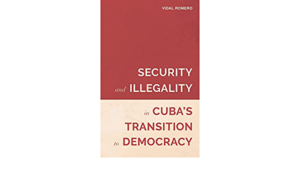 Living conditions in Cuba systematically deteriorated over the past decades. Many troubles could be avoided in the future if better political and economic institutions were established on the island, the LSE’s Latin America and Caribbean Centre (LACC) contends:
Living conditions in Cuba systematically deteriorated over the past decades. Many troubles could be avoided in the future if better political and economic institutions were established on the island, the LSE’s Latin America and Caribbean Centre (LACC) contends:
Widespread illegality coexists alongside relatively good security in Cuba. Economic and political liberalization are highly desirable and can entail significant benefits for the population. However, the process is not without danger. Vidal Romero’s book examines Cuba’s present security conditions and forecasts the effects of liberalization. Understanding these topics is key for a significant improvement of Cubans’ wellbeing and a more democratic political environment in this Caribbean nation.
Speakers
- Professor Vidal Romero – a visiting fellow and a former British Academy Professorial Fellow of the Latin America and Caribbean Centre.
To view or attend the event please register here.
A new culture of dissent is remaking Cuba’s politics, says analyst William M. LeoGrande.

Screenshot YouTube
Cubans are enduring the worst economic and social crisis since the 1990s, when the collapse of the Soviet Union plunged the island into a decade-long depression. Today’s upheaval, though, comes at a time of even greater political ferment on the Caribbean island, he writes for World Politics Review.
Cuba saw the largest protests in over 20 years on July 11, as protesters nationwide rallied over goods shortages, economic difficulties, and the government’s COVID-19 response, adds Freedom House. Security forces responded violently, using live ammunition, tear gas, and charging maneuvers against participants. Detainees faced torture and degrading treatment while in custody and suffered due process violations during subsequent trials.
On human rights, the House and Senate approved H.Res. 760 and S.Res. 310, in November and August 2021, respectively; both resolutions expressed solidarity with Cubans demonstrating peacefully, condemned Cuba’s acts of repression, and called for the immediate release of
arbitrarily detained Cuban citizens, says a recent Congressional Research Service report:
The Senate also passed: S.Res. 37 in April, expressing solidarity with the MSI [San Isidro Movement
– above, a civil society group opposed to restrictions on artistic expression]; S.Res. 81 in May, honoring Las Damas de Blanco, a woman-led human rights group; S. 2045 in July, which would rename the street in front of the Cuban Embassy after a democracy activist; and S.Res. 489 in January 2022, commending Cuban pro-democracy and human rights activists, including José Daniel Ferrer Garcia.







